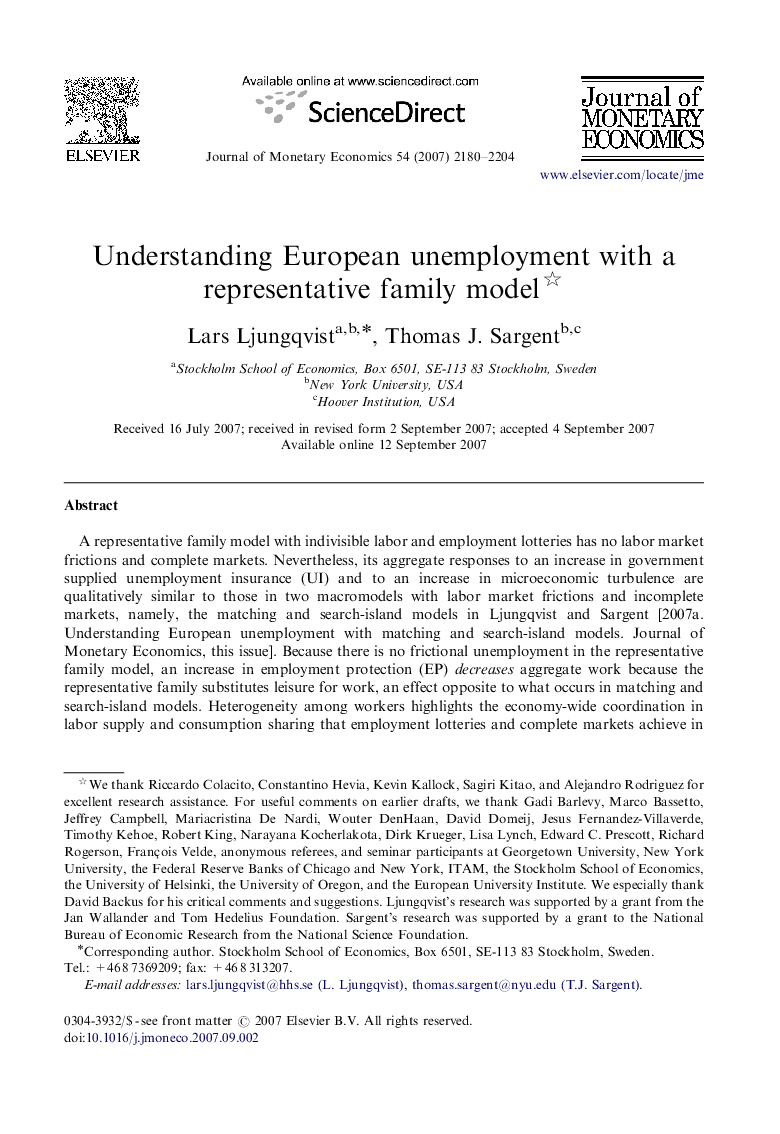| Article ID | Journal | Published Year | Pages | File Type |
|---|---|---|---|---|
| 967316 | Journal of Monetary Economics | 2007 | 25 Pages |
Abstract
A representative family model with indivisible labor and employment lotteries has no labor market frictions and complete markets. Nevertheless, its aggregate responses to an increase in government supplied unemployment insurance (UI) and to an increase in microeconomic turbulence are qualitatively similar to those in two macromodels with labor market frictions and incomplete markets, namely, the matching and search-island models in Ljungqvist and Sargent [2007a. Understanding European unemployment with matching and search-island models. Journal of Monetary Economics, this issue]. Because there is no frictional unemployment in the representative family model, an increase in employment protection (EP) decreases aggregate work because the representative family substitutes leisure for work, an effect opposite to what occurs in matching and search-island models. Heterogeneity among workers highlights the economy-wide coordination in labor supply and consumption sharing that employment lotteries and complete markets achieve in the representative family model. A high disutility of labor makes generous UI cause very low employment levels.
Related Topics
Social Sciences and Humanities
Economics, Econometrics and Finance
Economics and Econometrics
Authors
Lars Ljungqvist, Thomas J. Sargent,
